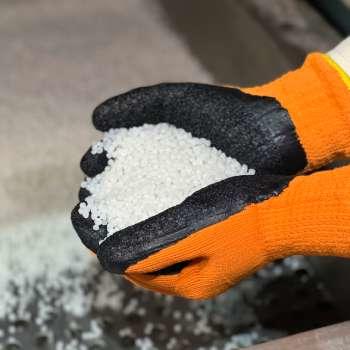Making cosmetic packaging with recycled plastic can avoid between 50% to 70% of CO2 emissions compared to a standard bottle. Hence, the demand for high-quality recycled plastics tends to increase as the main players in the global economy strive to reduce their environmental impact.
In order to secure their supplies recycled plastic for their packaging, L’Oréal has entered into a partnership agreement with Veolia at the global level. Veolia will thus supply the beauty giant with high-quality plastic obtained after processing waste materials derived from consumer packaging, especially plastic bottles. The waste material must be collected specifically to ensure the purity of the material and require “specific processing tools,” said Veolia in a statement.
Elimination of organic compounds
To guarantee maximum health safety for consumers, this recycled plastic used to produce new cosmetic packaging, “complies with food industry requirements and is subject to very demanding certifications,” added Veolia.

In order to meet the standards of the US Food and Drug Administration, Veolia has adopted a pelletisation technology using a system that is able to eliminate organic compounds. According to Veolia, the process developed by the company makes it possible to obtain a quality equivalent to that of virgin plastic.
“Our ambition is to be a privileged partner for all international brands wishing to develop sustainable packaging processes using recycled plastic all over the world in order to meet the major environmental challenges that face us all,” said Johann Bonnet, Vice-President in charge of Business Development and Strategic Accounts at Veolia.
According to Jacques Playe, Packaging and Development Director of L’Oréal, this partnership with Veolia for the supplying of very high-quality recycled plastic will help the group to achieve its ambitions to significantly improve the environmental footprint of its packaging by 2030. “We are convinced that we will succeed in promoting the circular economy if we join forces with expert partners to attain common objectives. This approach can be referred to as working in an extended ecosystem,” he said.
Packaging 360 is a comprehensive knowledge sharing ecosystem for the Indian packaging industry. Our services include an online content platform to deliver news, insights and case studies; organising conferences seminars and customised training; Providing Bespoke Project Consulting, Market Research and Intelligence.







